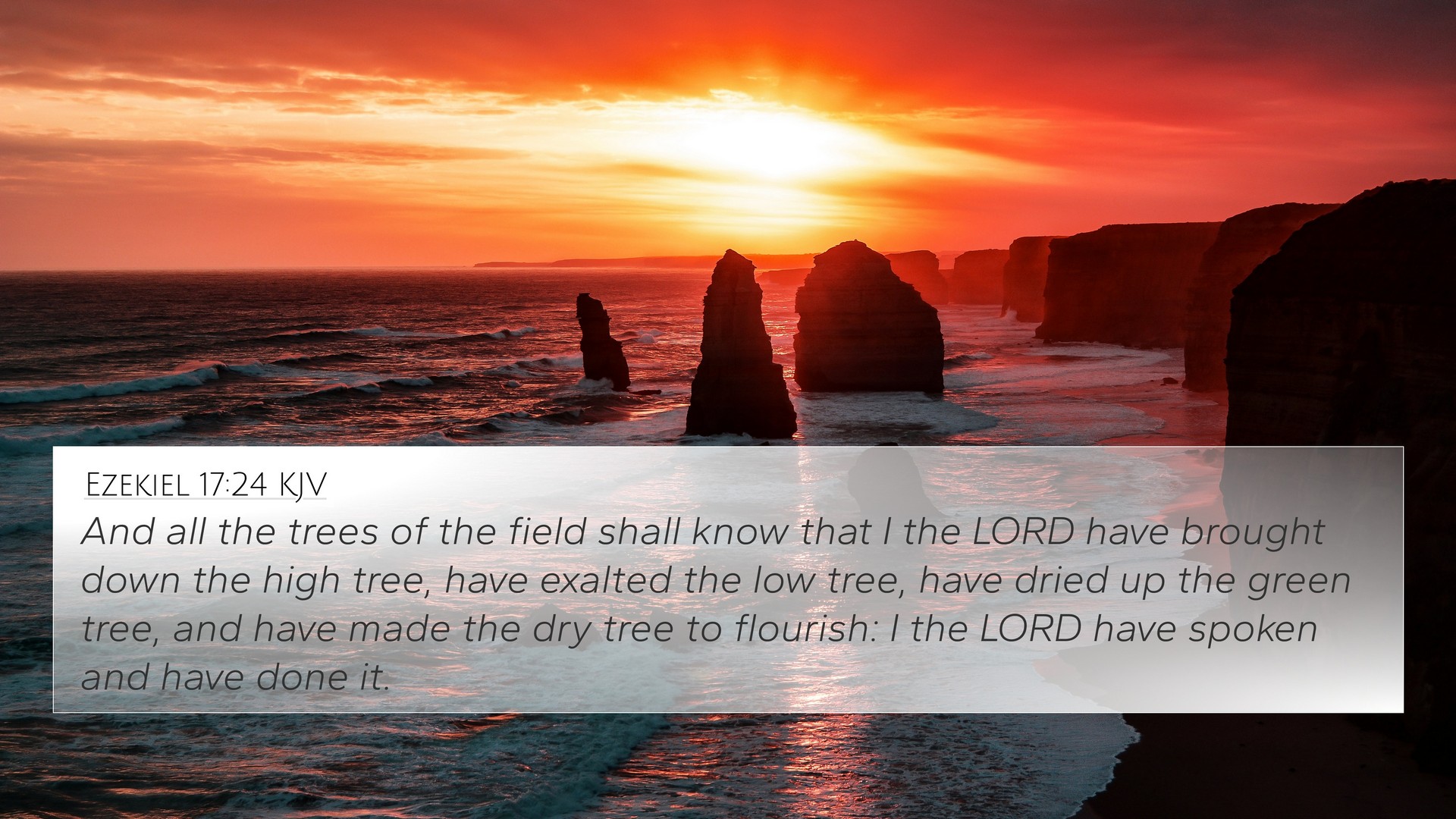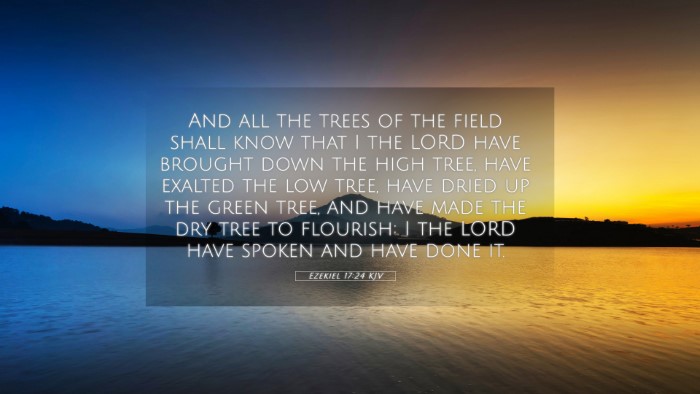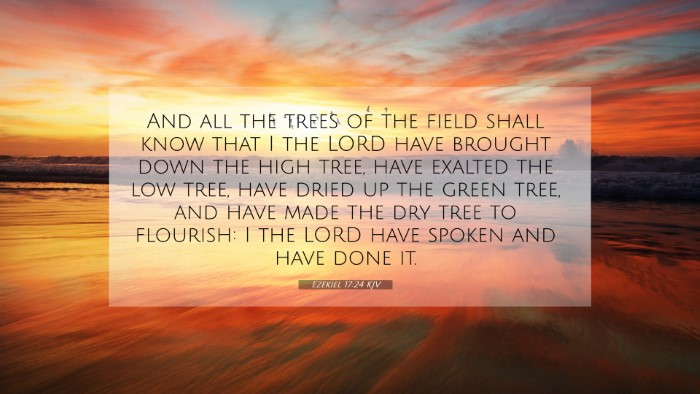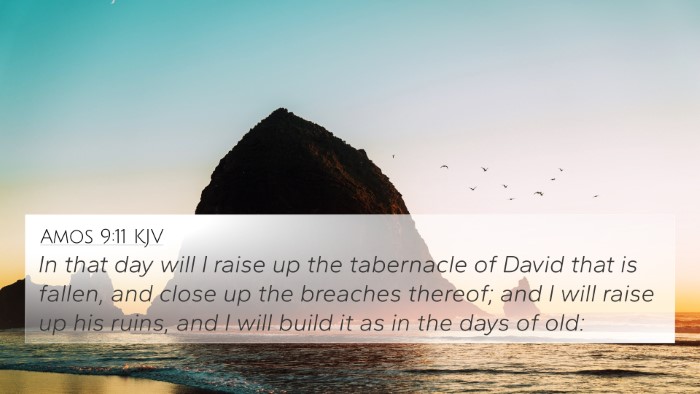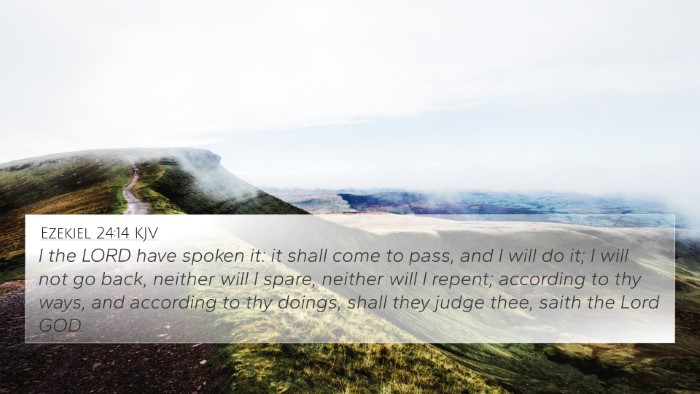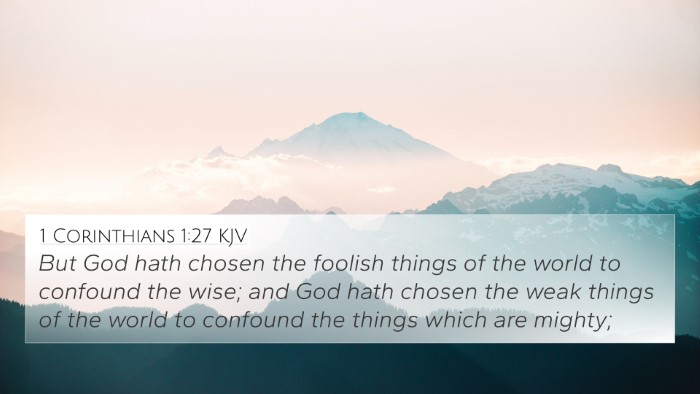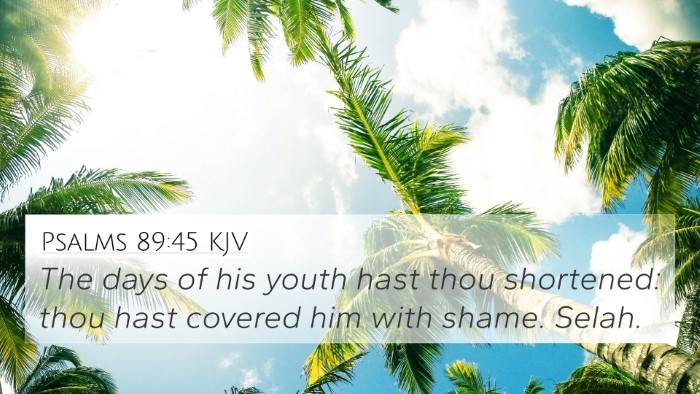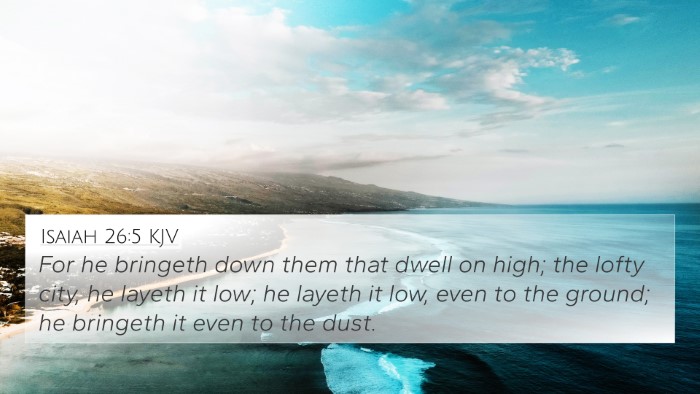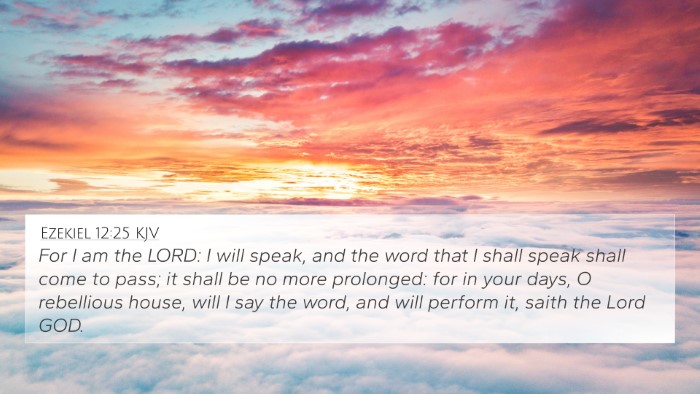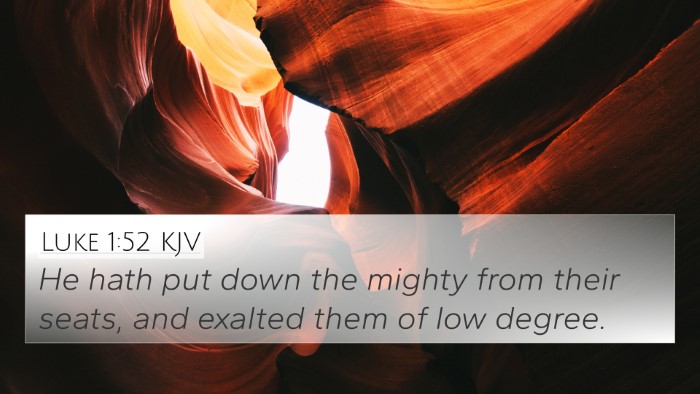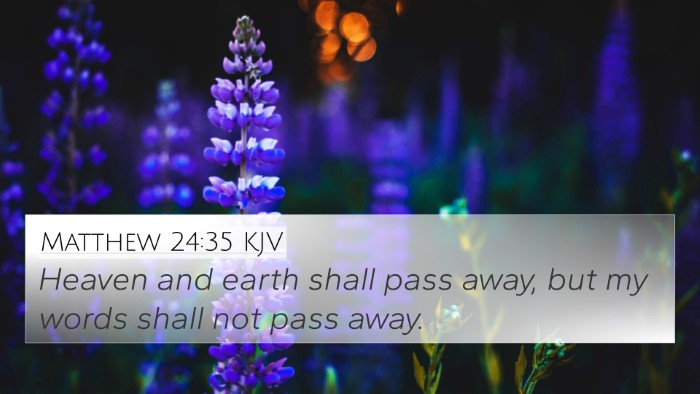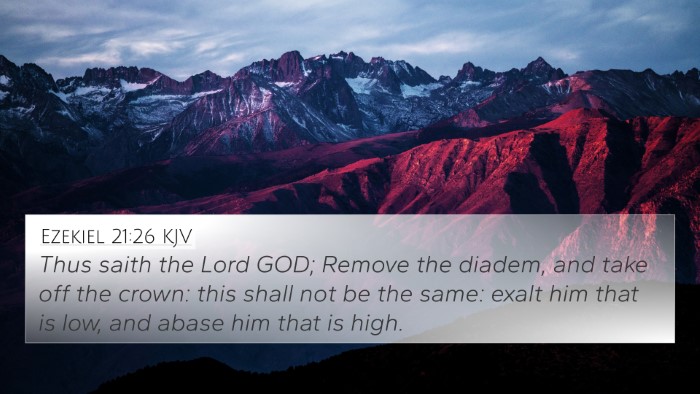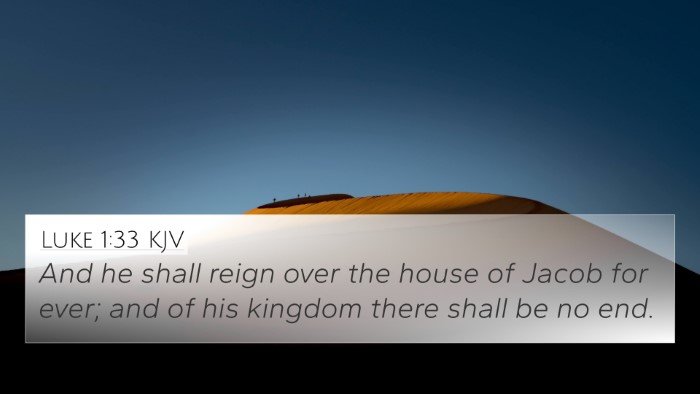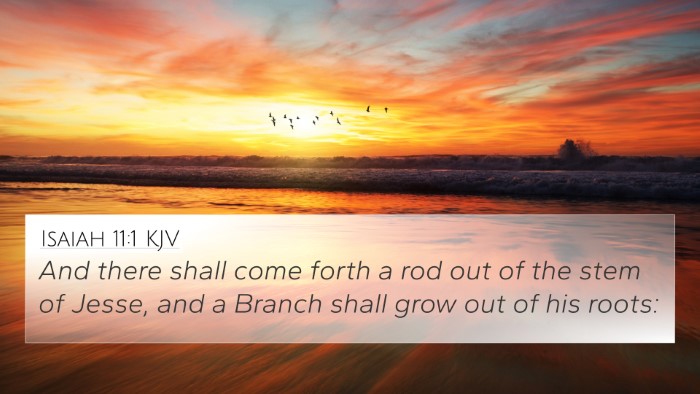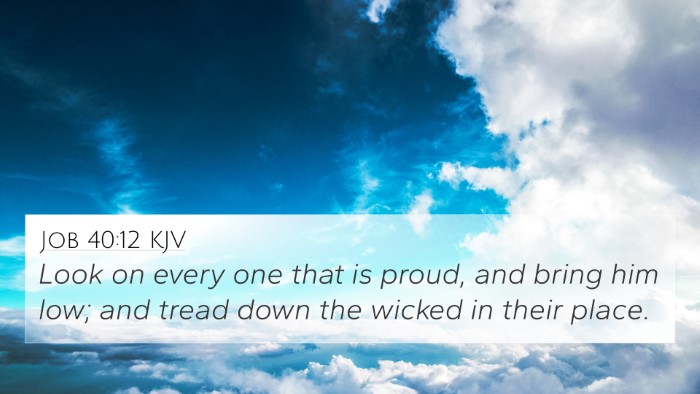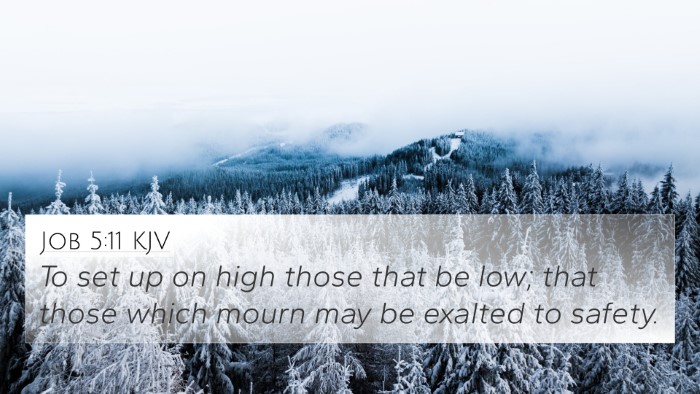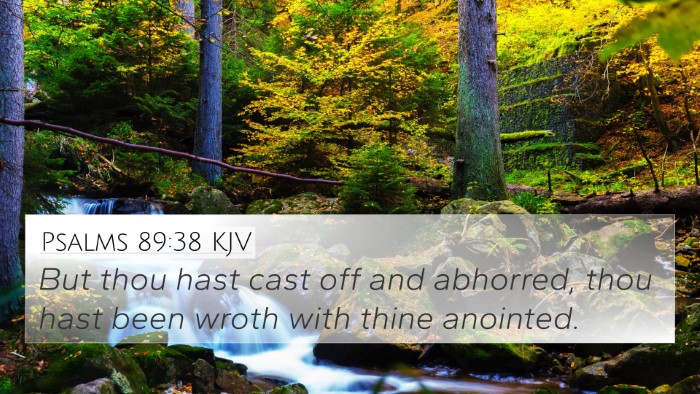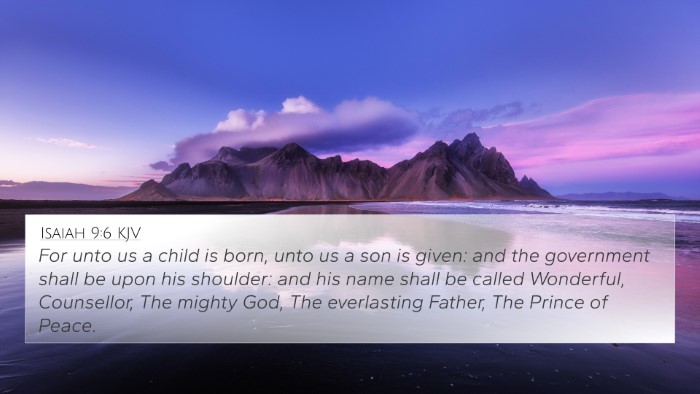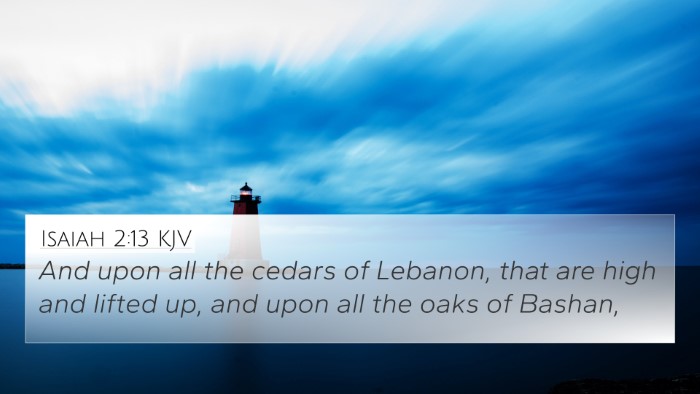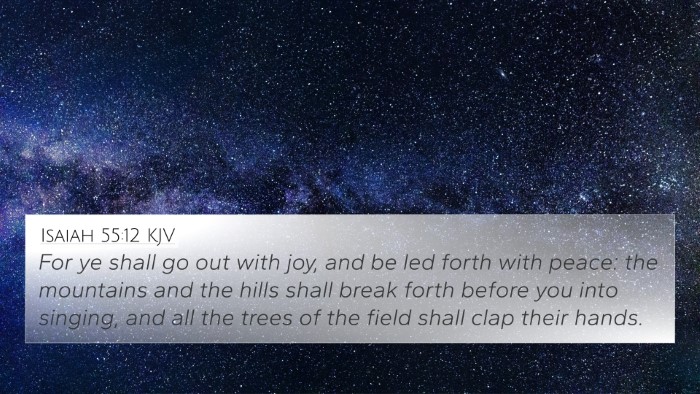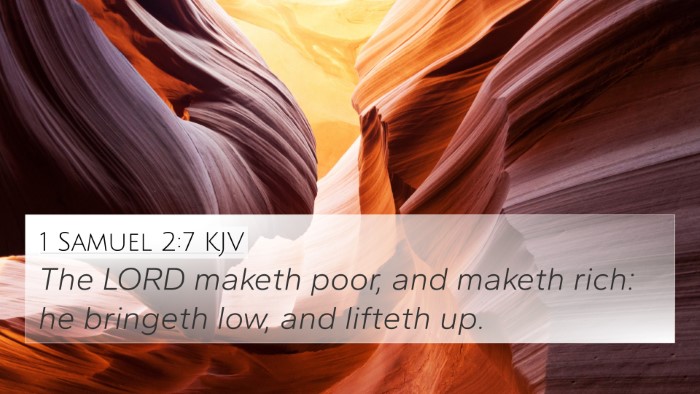Ezekiel 17:24 - Summary and Interpretation
Bible Verse: Ezekiel 17:24 - "And all the trees of the field shall know that I the Lord have brought down the high tree, have exalted the low tree; have dried up the green tree, and have made the dry tree to flourish: I the Lord have spoken and have done it."
Overview
This verse encapsulates a profound message of God's sovereignty and the reversals of fortune that characterize divine justice. Through metaphorical language involving trees, the passage conveys God's ability to elevate the humble and humble the proud. The imagery of trees symbolizes nations, rulers, and their fates as determined by divine will.
Commentary Insights
Matthew Henry's Commentary
Matthew Henry emphasizes that this verse illustrates God's ultimate authority over human affairs. The "high tree" represents those who are prideful or exalted in power, while the "low tree" symbolizes humility and lowliness. God's declaration that He "has brought down the high tree" serves as a powerful reminder that He is in control of the rise and fall of rulers and nations.
Albert Barnes' Commentary
Albert Barnes notes the prophetic nature of Ezekiel's message. He interprets the "trees of the field" as a representation of all creation, which recognizes God's power. The drying up of the "green tree" suggests a loss of vitality in those who oppose Him, while the flourishing of the "dry tree" indicates the restoration of what appeared dead. Barnes highlights God's faithfulness in fulfilling His promises to restore His people.
Adam Clarke's Commentary
Adam Clarke explains that this verse signifies the constant theme of divine justice, where God governs the world with unwavering authority. He points out that the phrase "I the Lord have spoken and have done it" reinforces God's commitment to His word, emphasizing that what God decrees will surely come to pass. Clarke also discusses the implications of this transformation in the context of Israel’s restoration.
Thematic Connections
Ezekiel 17:24 contains rich thematic elements that resonate throughout Scripture. Here are some cross-references that highlight similar themes:
- Isaiah 2:12: "For the day of the LORD of hosts shall be upon every one that is proud and lofty..." - This verse speaks similarly about the humbling of prideful individuals.
- James 4:6: "But he giveth more grace. Wherefore he saith, God resisteth the proud, but giveth grace unto the humble." - The message parallels Ezekiel's themes of humility and divine favor.
- Psalms 75:7: "But God is the judge: he putteth down one, and setteth up another." - A direct reference to God’s sovereign control over leadership.
- Jeremiah 17:7-8: "Blessed is the man that trusteth in the Lord, and whose hope the Lord is." - This reflects a similar contrast between the flourishing of the faithful and the downfall of the wicked.
- Luke 1:52: "He hath put down the mighty from their seats, and exalted them of low degree." - A New Testament confirmation of God's justice and reversal of fortunes.
- Matthew 23:12: "And whosoever shall exalt himself shall be abased; and he that shall humble himself shall be exalted." - Echoing the themes found in Ezekiel’s prophecy.
- Proverbs 3:34: "Surely he scorns the scorners: but he giveth grace unto the lowly." - Reaffirming God's favor towards the humble.
Understanding the Cross-Referencing of Biblical Texts
This passage is an excellent example of scriptural cross-referencing, showcasing how various Bible verses relate to one another. In studying Ezekiel 17:24, readers can identify connections between the Old and New Testaments, thus enriching their understanding of the themes of divine sovereignty and justice.
How to Use Bible Cross-References
Utilizing cross-references enables a deeper comprehension of scripture. These references provide insights into recurring themes, historical contexts, and the overall narrative of the Bible:
- Identifying Connections: Look for verses that deal with similar themes, such as humility, divine justice, or restoration.
- Thematic Studies: Create thematic studies based on the concepts found in Ezekiel 17:24, exploring related verses in both the Old and New Testaments.
- Comparative Studies: Engage in comparative studies between prophetic messages and New Testament fulfillment.
- Tools for Bible Cross-Referencing: Utilize resources such as Bible concordances, cross-reference guides, and comprehensive materials to aid in your studies.
Conclusion
Ezekiel 17:24 is a rich verse filled with profound meaning and connections throughout the Bible. Its themes of divine authority, the reversal of fortunes, and the recognition of God's sovereignty resonate across multiple passages. By engaging in cross-referencing and comparative verse analysis, believers can deepen their understanding of Scripture and appreciate the intricate relationships between the various texts.
